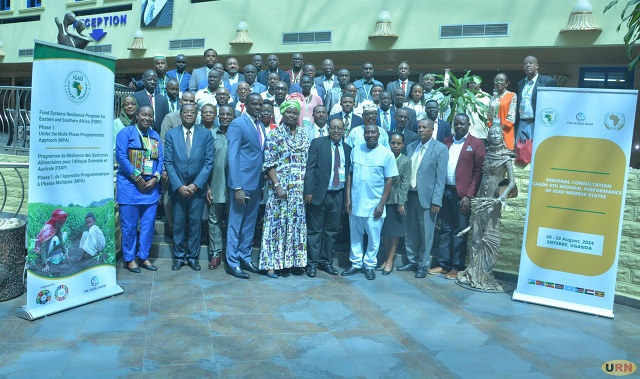
Entebbe, Uganda | THE INDEPENDENT | The Intergovernmental Authority on Development (IGAD) has raised concern over the slow progress by member states in meeting the commitments made under the Malabo Declaration.
The Declaration, signed in 2014 in Equatorial Guinea, set ambitious goals for accelerating agricultural growth, enhancing shared prosperity, and improving livelihoods across Africa, with a target to achieve significant progress by 2025.
During the Malabo Summit, African nations pledged to allocate at least 10% of their national budgets to agriculture to boost productivity and eradicate hunger by 2025.
However, Dr. Sylvia Henga, IGAD’s Policy, and Food Security Officer, revealed in a press briefing at a regional consultation on the Comprehensive Africa Agriculture Development Programme (CAADP) in Entebbe that after a decade none of the member states have fulfilled the commitment.
Dr Henga emphasized the urgency of developing robust policies and resilient agricultural systems that can end hunger by increasing financial support for women and youth in agriculture.
She also highlighted IGAD’s focus on enhancing climate resilience, stressing the importance of moving from early warning systems to early response strategies. “We’ve been alerting our regions about impending droughts or floods, but we must now focus on timely responses to these threats,” Henga stated.
She underscored the need to build strategic food reserves and promote local food systems to strengthen food security in the region.
Collins Amanya, the Assistant Commissioner of Planning at Uganda’s Ministry of Agriculture, Animal Industry, and Fisheries (MAAIF), acknowledged that Uganda, like many IGAD member states, has not met the 10% budgetary commitment.
He explained that Uganda’s current agricultural funding stands at only 3-4%, significantly below the Malabo targets. Amanya called for increased investment in the commercialization of agriculture, agro-processing, and value addition to enhance the sector’s contribution to the economy.
Amanya also pointed out that inadequate data collection, preparation, and analysis among member states have been significant obstacles to achieving the Malabo commitments. He stressed the need for more skilled experts and advanced software systems to manage agricultural data effectively.
Dr. Mohyeldeen Eltohami, Director of the Economic Cooperation and Regional Integration Division at IGAD, reiterated that agricultural funding among IGAD states remains critically low, with no country reaching more than 3% of their national budget allocations.
He noted that, while some progress has been made in other areas, much more is needed to fully realize the Malabo commitments.
******
URN
 The Independent Uganda: You get the Truth we Pay the Price
The Independent Uganda: You get the Truth we Pay the Price





